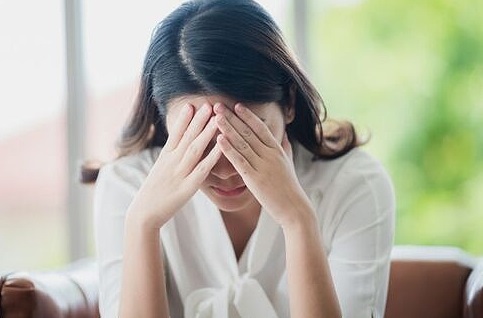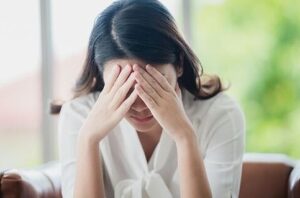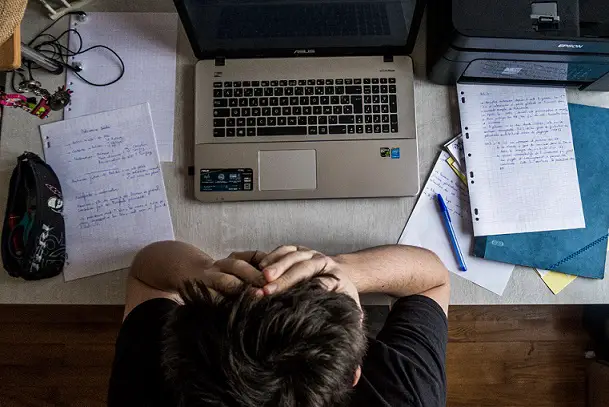
Depression: Symptoms, Causes, Treatments
Depression is a mental health disorder that affects millions of people worldwide. It is a condition that causes a persistent feeling of sadness, hopelessness, and loss of interest in once-enjoyable activities. According to the World Health Organization (WHO), over 264 million people worldwide suffer from depression, making it the leading cause of disability worldwide.

What is depression and what causes it?
Depression can be caused by a variety of factors, including genetics, brain chemistry, life events, and environmental factors. Some people may be genetically predisposed to depression, meaning they are more likely to develop the condition if a family member also has it. Changes in brain chemistry can also contribute to depression, as certain chemicals in the brain, such as serotonin and dopamine, are involved in regulating mood. Life events such as trauma, stress, or the loss of a loved one can also trigger depression. Personality traits such as perfectionism or low self-esteem can also increase a person’s risk of developing depression.
Depression is a complex disorder that affects a person’s mood, behavior, and physical well-being. It can range from mild to severe and can last for days, weeks, months, or even years. Depression is a common condition that affects people of all ages, genders, and races.
Symptoms of Depression
Symptoms of depression vary from person to person, but some common symptoms include:
- Persistent sadness: A person with depression often feels sad or empty most of the time. They may experience a loss of interest in activities they once enjoyed and may have trouble finding pleasure in life.
- Lack of energy: Depression can cause extreme fatigue and a lack of energy, making it difficult to perform everyday activities.
- Changes in appetite: A person with depression may experience changes in their appetite, such as overeating or not eating enough. They may also experience weight gain or weight loss.
- Sleep disturbances: Depression can cause sleep disturbances, such as insomnia or oversleeping.
- Difficulty concentrating: A person with depression may have trouble concentrating or making decisions. They may also experience memory problems.
- Feelings of hopelessness: Depression can cause a sense of hopelessness and a feeling that life is not worth living.
- Physical symptoms: Depression can cause physical symptoms such as headaches, digestive problems, and body aches.
- Irritability: A person with depression may experience irritability, restlessness, or anger.
It is important to note that not everyone with depression will experience all of these symptoms. However, if a person is experiencing several of these symptoms for more than two weeks, they may be diagnosed with depression. Warning signs that a person may be at risk of developing depression include changes in behavior, such as withdrawing from social activities or neglecting personal hygiene.
Types of Depression
There are several types of depression, including major depressive disorder, persistent depressive disorder, and bipolar disorder. Major depressive disorder is the most common type of depression and is characterized by symptoms such as sadness, loss of interest, and lack of energy. Persistent depressive disorder, also known as dysthymia, is a milder form of depression that lasts for two years or more. Bipolar disorder, also known as manic depression, is a condition that causes extreme shifts in mood, energy, and activity levels.
Treatment Options for Depression
Depression can be treated with a variety of approaches, including medication, therapy, and lifestyle changes. Antidepressant medication can help regulate the chemicals in the brain that affect mood. Therapy, such as cognitive-behavioral therapy or interpersonal therapy, can help a person identify and change negative thought patterns and behaviors that contribute to depression. Lifestyle changes such as exercise, healthy eating, and stress management techniques can also help alleviate symptoms of depression. Specific self-help strategies that readers can implement include regular exercise, eating a balanced diet, getting enough sleep, seeking social support, practicing relaxation techniques like deep breathing or meditation, and setting achievable goals.
Alternative therapies may also help treat depression. These include acupuncture, massage therapy, and yoga. However, it is important to note that alternative therapies should be used in conjunction with traditional treatments, not as a replacement for them.
If you or someone you know is experiencing symptoms of depression, it is important to seek help from a healthcare professional. Depression can be a serious condition that affects every aspect of a person’s life, but with the right treatment, most people can recover and lead a fulfilling life.
Depression is a common mental health disorder that affects millions of people worldwide. It can be caused by a variety of factors, including genetics, brain chemistry, life events, and environmental factors. Symptoms of depression can vary from person to person but may include persistent sadness, lack of energy, changes in appetite, and sleep disturbances. Depression can be treated with medication, therapy, lifestyle changes, and alternative therapies. If you or someone you know is experiencing symptoms of depression, seek help from a healthcare professional. There are many resources available, including the National Institute of Mental Health, which provides information on the latest research and treatment options for depression. Remember, with the right treatment, most people can recover and lead a fulfilling life.




